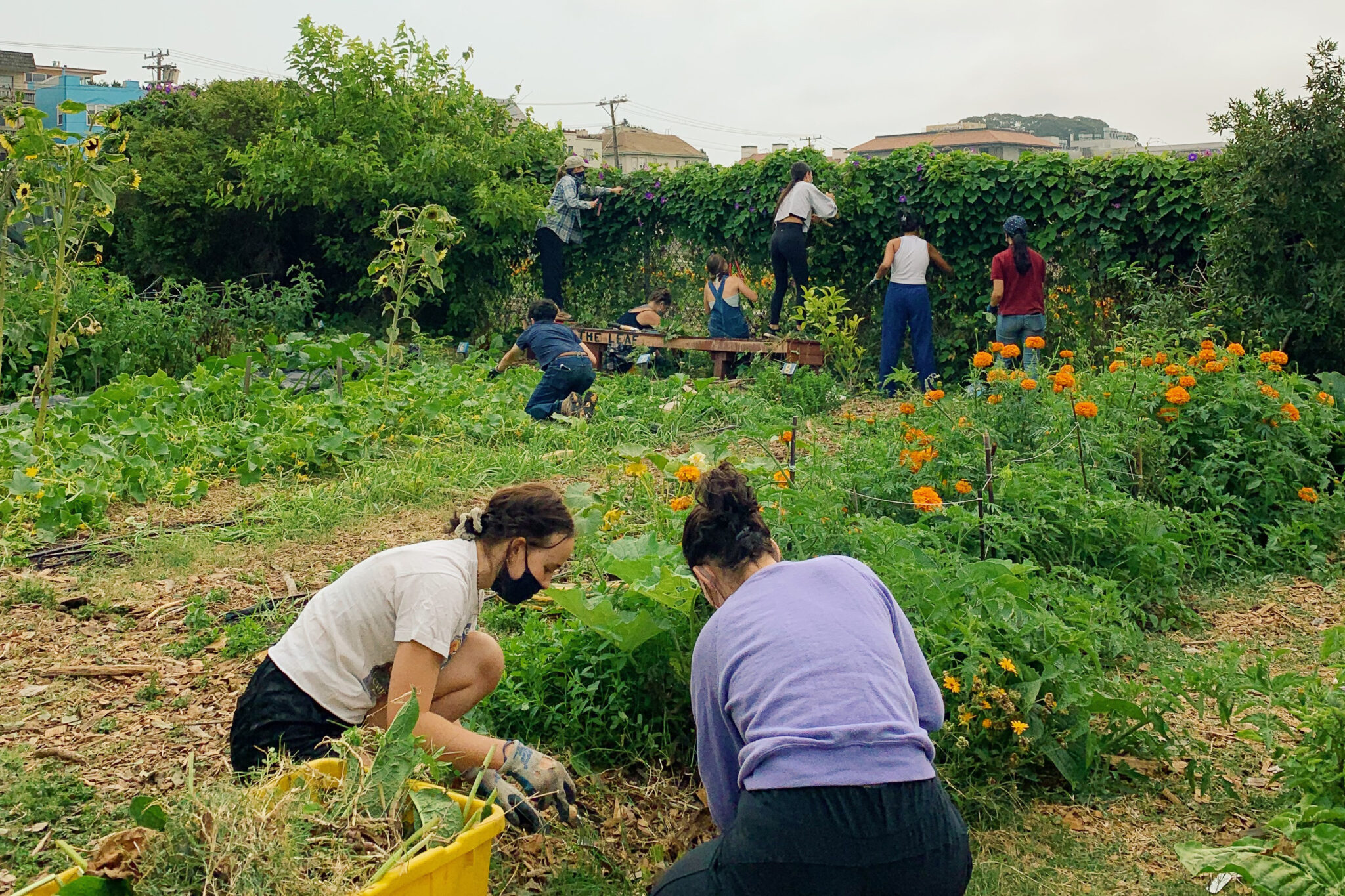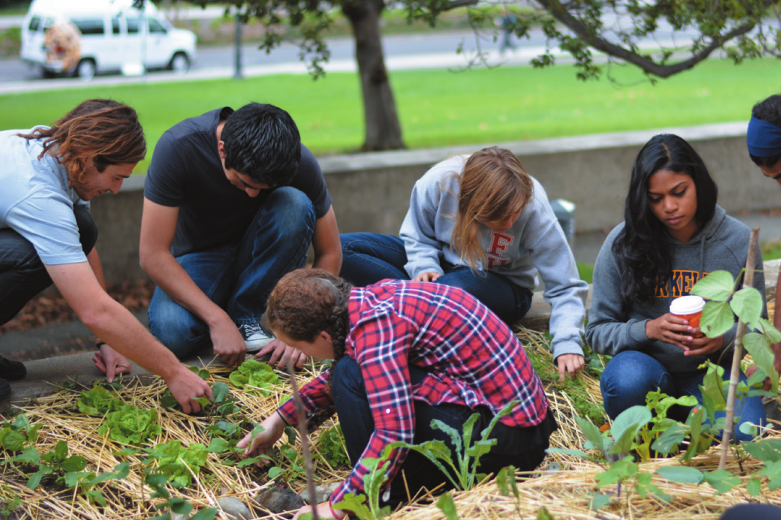Students who complete the Food Systems Minor will gain a broad and interdisciplinary understanding of critical themes and concepts related to the social, political, economic, environmental, cultural, nutritional, and public health issues of contemporary food and agriculture systems both domestically and internationally. If you would like to pursue this minor, click the link below and complete the Minor Declaration Form during the semester before the term you plan to graduate.
For Students
Food Systems Minor
The Food Systems Minor is an interdisciplinary program of study that explores the role of food within society and the environment. Launched in Fall 2015 and hosted by the Department of Environmental Science, Policy, and Management at the Rausser College of Natural Resources, the minor draws from diverse fields, such as ecology, sociology, nutrition, history, and economics.
This minor is designed for undergraduate students at UC Berkeley. Students are required to take five courses to complete the minor, one of which is the required community engagement course ESPM 197: Experiential Learning Through Engagement in Food Systems. The goal is for students to critically examine issues of contemporary food and agriculture from a whole-systems perspective.

Graduate with a Minor in Food Systems

Experiential Learning Through Engagement in Food Systems
The capstone course of the Food Systems minor, called Experiential Learning Through Engagement in Food Systems, invites students to collaborate with diverse partners both affiliated and unaffiliated with the University of California: farms, grassroots organizations, businesses, UC Cooperative Extension, research centers, and more. Click the link below to learn more about this course and read about past student projects.

Reflecting on the Food Systems Minor
In May 2019, Food Systems Minor graduates Daniela Solis and Mackenzie Feldman, together with lecturer Paul Rogé, released “Discussing the Food Systems Minor at UC Berkeley: a Three Year Report” to reflect on the accomplishments of the first years of the minor and identify areas for improvement in terms of student learning and outcomes.